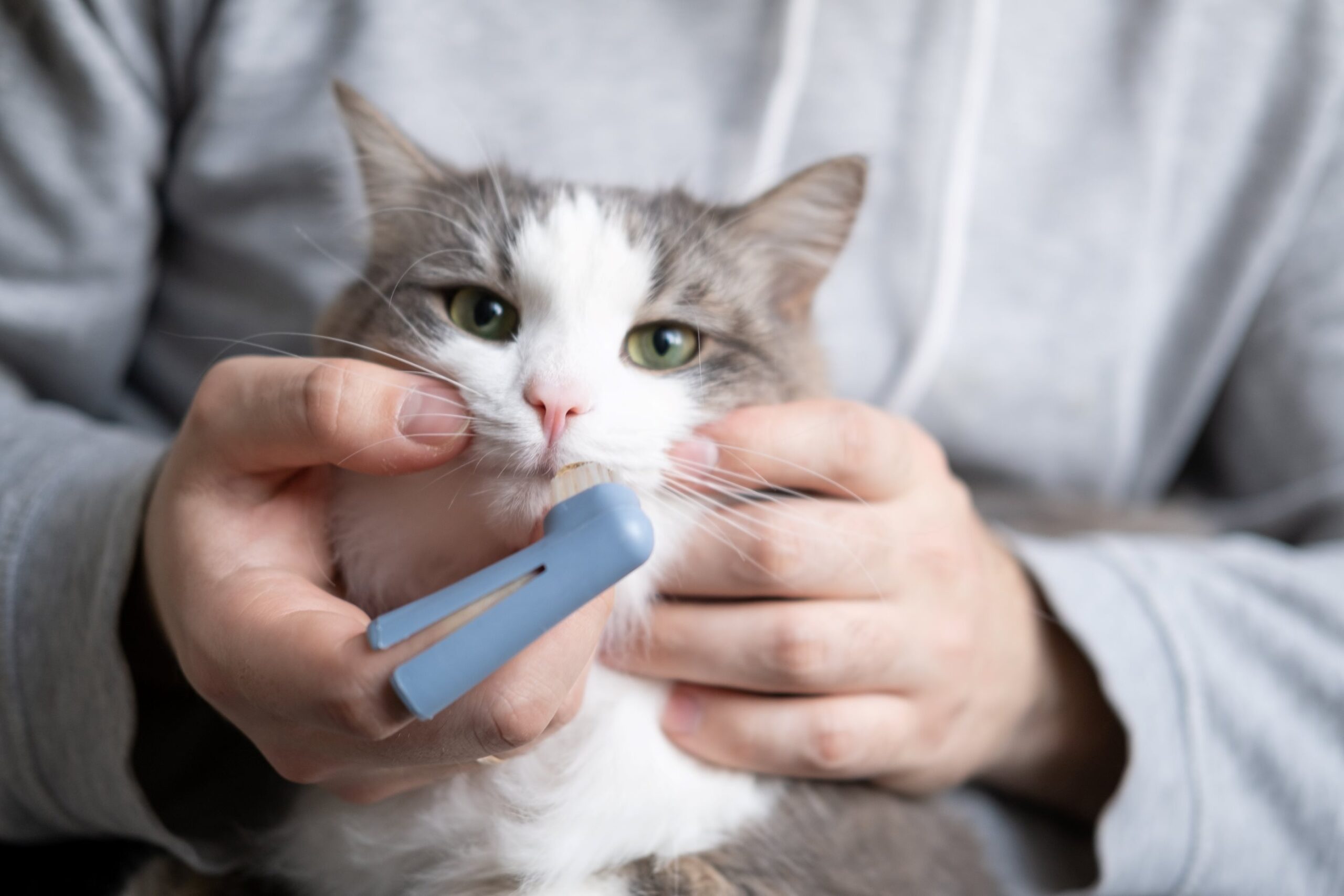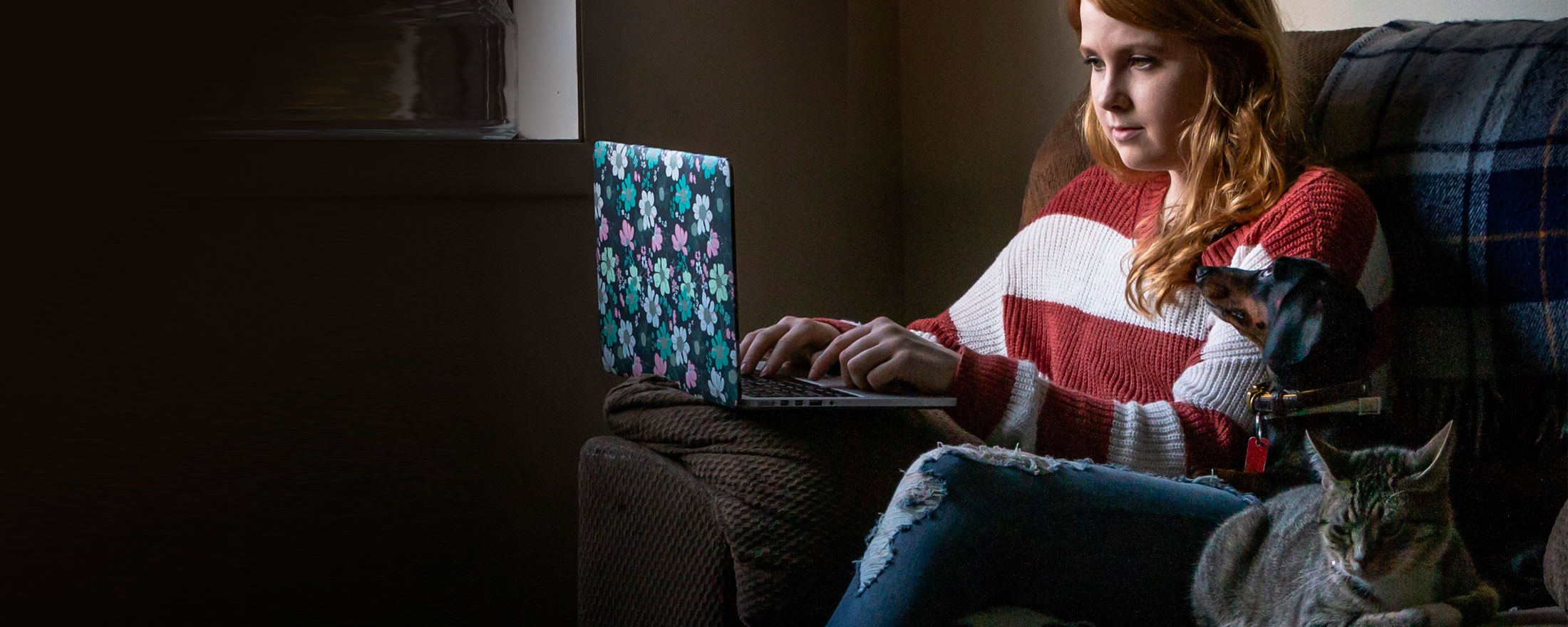
01 Sep What are “anesthesia free dentals”?
In recent years, a new trend has been popping up – companies advertising “Anesthesia Free Dentals” for pets. These procedures are not recommended and can even be worse than doing nothing at all. How can that be?
Problems with Anesthesia Free Dental Cleanings
Anesthesia free dentals focus on removing the plaque and tartar on the visible part of the tooth (the crown), which is actually the least important area to clean. Plaque and tartar build up BELOW the gumline is what causes inflammation and bone loss which can lead to painful, mobile teeth that need to be extracted. Plus, even veterinarians need to be careful to clean each tooth above and below the gumline as it is easy to miss a spot, even with perfectly still patients and magnification. It is just not possible to achieve the same level of care while the patient is awake.
What’s more, dental x-rays are a vital part of assessing the health of each tooth, as we cannot visualize the roots of the teeth with the naked eye. Even the world’s best dog won’t sit still and hold the x-ray plate in their mouth in the proper position, so anesthesia is necessary to acquire good quality, diagnostic dental x-rays.
Lastly, companies advertising anesthesia free dentals do not have the knowledge or training needed to successfully identify and treat any dental problems your pet may have (and most pets do develop problems as they get older!). Your pet’s teeth may appear white and shiny after an anesthesia free dental, but you will have been lulled into a false sense of security that your pet has a healthy mouth, while subjecting your pet to a stressful and potentially painful experience.
What if my pet has a complicated health history?
Many clients worry about putting their pet under general anesthesia, especially if they have underlying health concerns such as heart or kidney disease, or if they’ve had trouble under anesthesia in the past. This is totally understandable and there will always be a small amount of risk with anesthesia, but much of the risk can be mitigated when anesthesia is performed by knowledgeable professionals. At Animal Dental Care & Oral Surgery, we always perform preoperative bloodwork and thorough full-body exams on every patient so that we can identify any underlying health concerns ahead of time and plan for them. Patients with known underlying conditions such as heart disease, kidney disease, seizures or diabetes should always follow up with their cardiologist or internal medicine specialist prior to the procedure to make sure that they are a good candidate for anesthesia.
Here at Animal Dental Care & Oral Surgery we also have the option of having a board-certified veterinary anesthesiologist perform and monitor your pet’s anesthesia – either in person or virtually in conjunction with our knowledgeable and experienced staff. This is a wonderful option for pets with complicated health histories or anyone who wants peace of mind that their pet’s anesthesia is being performed by a specialist.



